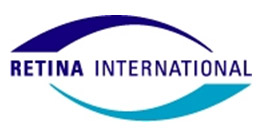Retina International Joins with Organizations Around the World to Raise Awareness of retinal dystrophies
Inherited retinal dystrophies such as RP, Usher Syndrome, Macular Degeneration and allied retinal disorders continue to be significant causes of Vision Loss Globally
 Retinal dystrophies affect more than 40 million people worldwide. The global cost of these debilitating disorders, could be as high as $US20b annually, underscoring the need for swift actions to raise awareness of prevention, diagnosis and treatment options.
Retinal dystrophies affect more than 40 million people worldwide. The global cost of these debilitating disorders, could be as high as $US20b annually, underscoring the need for swift actions to raise awareness of prevention, diagnosis and treatment options.
On world retina day, September 29 2012 retina International with its 32 member organizations and leading eye-care organizations from 32 countries, are calling on patients and their friends and families, eye-care professionals, vision researchers and scientific and medical funding bodies to think about what they can do to hasten the pace of progress towards the development and worldwide availability of safe and effective treatments.
This is a crucial time for patients, clinicians and research sponsors as comprehensive diagnostic data and clinical trial data have the ability to alter the prognosis for millions of patients who are experiencing sight-loss attributable to retinal disorders.
We know from more than 30 years as an international patient organization that the rate of progress towards comprehensive effective diagnosis programmes and widespread availability of treatments for Retinal disorders is largely dependent on the awareness and understanding of those who can address the associated issues.
Losing vision has devastating consequences to an individual’s daily life and those affected by retinal diseases often suffer from severe depression and loss of independence.
However, we can all take steps to brighten the future and educe needless sight loss.
At a recent presentation at the 17th world congress of retina International, leading ophthalmology researcher Prof Robert MacLaren, University of Oxford, UK summarized the steps in planning a clinical trial.
(i) Define the Disease
(ii) Identify the disease mechanism
(iii) Identify possible treatment
(iv) Plan the trial
(v) Undertake Trial
(vi) Determine the therapeutic benefit
Patients can assist with defining the diseases by consulting with eyecare professionals and providing crucial data for defining genotype and phenotype, assist with conducting clinical trials by becoming subjects or assisting with generating revenue streams to allow trials to proceed. Friends and family are important in defining disease types, supporting patients through clinical trial processes.. The medical profession and health authorities have a role in ensuring training and resources are optimized with respect to effective prevention, diagnosis and treatment programmes are executed. And we can all advocate, to all involved in any of the 6 phases mentioned here, for the significant social,economic and communal benefits that we know will result from widespread access to safe, effective treatments for retinal disorders.
In addition, rehabilitation and support services can significantly help patients live with retinal diseases and make the most of their remaining vision.
“retinal disorders are conditions that we will one day be able to treat” says christina fasser , president of retinaInternational . “We all have an opportunity to contribute towards saving the sight of millions of people. Taking this opportunity could be as simple as providing a blood sample, writing to a research funding decision-maker or providing input into a Health technology assessment process”
Through its World retina day 2012 campaign, retina International is increasing public education efforts by informing the public of diagnostic programmes, treatment development initiatives, and rehabilitation and support options that are available in the fight against blindness attributable to retinal disorders.
To learn more about retina International visit
MORE ABOUT retinal disorders
Inherited Retinal Diseases such as Retinitis Pigmentosa (RP)are conditions that affect people of all ages from infancy through to adulthood and although they are generally genetic they can also occur sporadically in patients with no family history of the disease. Retinitis Pigmentosa (RP) is part of the family of Inherited Retinal Diseases which cause the retina to degenerate over a period of time specific to each individual. The more time goes by without treatment the more sight is irreversibly lost.

